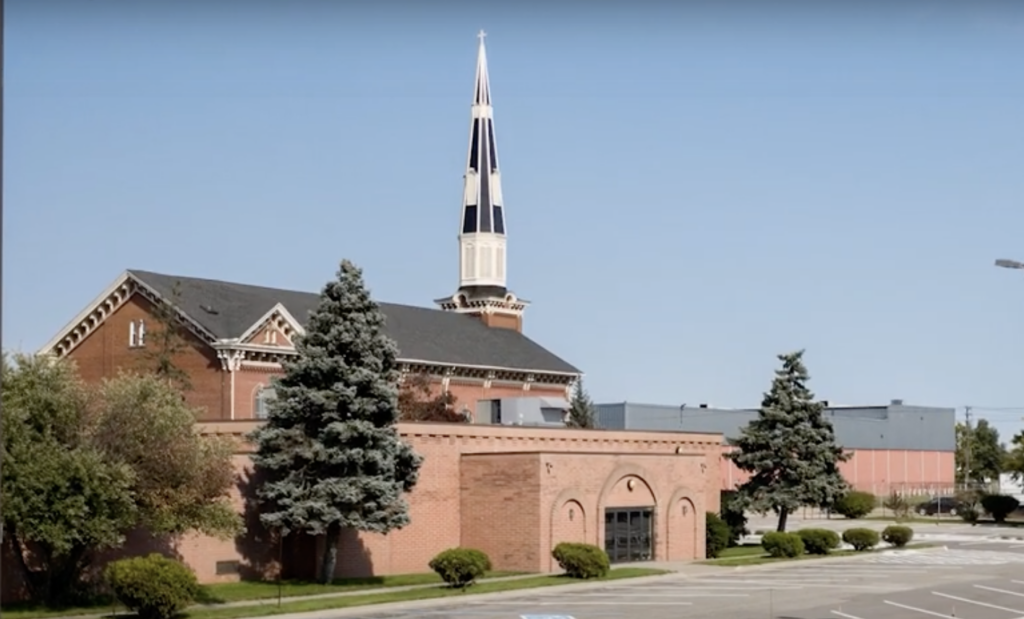Dan Carmody, Eastern Market Partnership CEO, Talks About Building Opportunity, Economy and a Stronger Regional Food System

Dan Carmody, Eastern Market Partnership CEO since 2007, spoke with SBN Detroit on the market’s positioning towards sustainable practices. Carmody is responsible for shepherding the 127-year-old, public market to nourish a healthier, wealthier, and happier Detroit. EMP operates one of the largest public markets in the United States, oversees a program of capital investments to rebuild the market, serves as the economic development organization to nurture and expand the Eastern Market District, manages a host of food access programs to improve Detroit diets, and builds an ecosystem to support Detroit food entrepreneurs. Carmody has led Eastern Market to become a national thought leader in developing new templates for how to repurpose urban vacant land and resurrect regional food systems. We talked to Carmody about EMP’s sustainability strategies. Q: Where do EMP’S strengths lie in terms of sustainability? A: Put quite simply, we work to help build a stronger regional food system to make us less reliant on large industrial food systems. There are not enough public markets in the U.S. that serve to support independent small businesses. Public markets are the original “pop up.” Small startups and entrepreneurs can pay the fee to rent a stall or tent and get moving on their business. We need more places like that around the country to help small businesses and not be so dependent on big companies. Q: What does sustainability mean to the market? A: It means that farmers are being compensated for crops in a fashion that allows financial success. It means farmers and growers embracing business practices that help us steward the earth in better ways than we are now. How do you approach partnering with sustainable companies in the food and agriculture industries? A: Two things I can point to that we work on are first, helping to make solar options more viable, and second, helping businesses work stormwater management into their practices to reduce the cost of operation and decrease the amount of stormwater run-off into the Detroit River. Q: How does the addition of these new entities move sustainability forward in Eastern Market? A: The new Mosaic food hall will be located at 3500 Riopelle St. in the former Detroit Water Department building. This building hasn’t been occupied since 1999, so the mere act of utilizing an existing building versus tearing it down and starting over is in itself a very significant sustainable practice. EW Grobbel, who’s been selling corned beef and other foods since the 1970s, will open a new grocery store and deli, creating 300 new jobs and offering local farmers a great venue to sell. These are two great examples of growth occurring now that help move sustainability forward. Q: Looking back eight to ten years, what was your selling point then to bring businesses into the market and also to approach sustainability with them? How has that changed? A: It has not changed much. We look for partners in the food sector and others that build the market as a regional food hub and also improve the business mix for the retail consumer supply and demand. There is an authenticity to the market that has always been there and is still today. Its focus is on independent businesses and if anything, we are becoming more vocal to make sure it remains this way as property values increase. Q What partnerships do you value when it comes to sustainability? A: One that comes to mind is our partnership with The Nature Conservancy in helping businesses design and implement stormwater management systems. This has been going on for several years. We piloted a conversion of a parking lot to retain stormwater at Sacred Heart Church in the Market District that resulted in the reduction of stormwater runoff and reduced their water bills greatly. Throughout our expansion, The Conservancy is helping us as we identify future buildout plans and repurpose urban land for industrial and commercial use to build in stormwater management systems as we go. Q: What can you tell us about the new expansion of the market? A: The expansion involves 25 to 30 acres and a $1 million food processing and distribution space. Again, this will bring new jobs to the Market District, more healthy food options for people in nearby neighborhoods, and vitality and growth to the whole district. Eastern Market has one of the largest footprints of any public market in the country – and we have the space and the means to go bigger. We’ve worked over time to bring in more value-added makers, and now the market is a viable market on Saturday all year and the expansion will strengthen that. From an economic standpoint, we work to offer more opportunities to entrepreneurs to help them grow, and we will continue to do so. We’ve received funding from the state to build what we are referring to as Shed X – a new wholesale distribution facility for regional farmers. Since 1891 farmers have come to the market between midnight and 6 am to sell to independent grocers. This has shrunk over the years and we are down to about 40 million pounds per year. This is not small, but it’s also not big in terms of food distribution. We hope to grow this by building a new, modern facility with refrigeration and docks that the farmers can more efficiently use. We’ll utilize solar lighting and stormwater management within this facility. All of this will serve to help the local economy, and the diversification creates and keeps jobs in the city. Be sure to subscribe to our newsletter for regular updates on sustainable business practices in and around Detroit.


